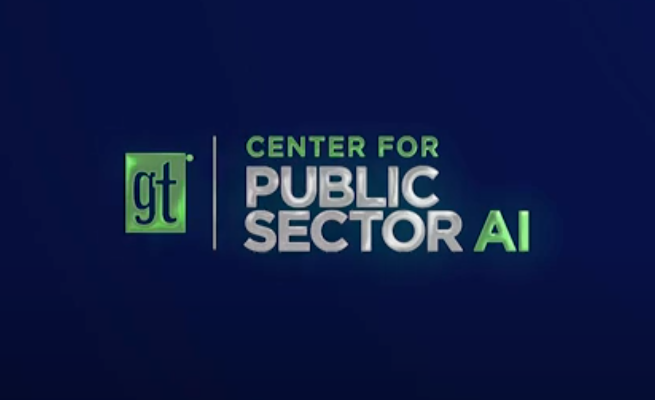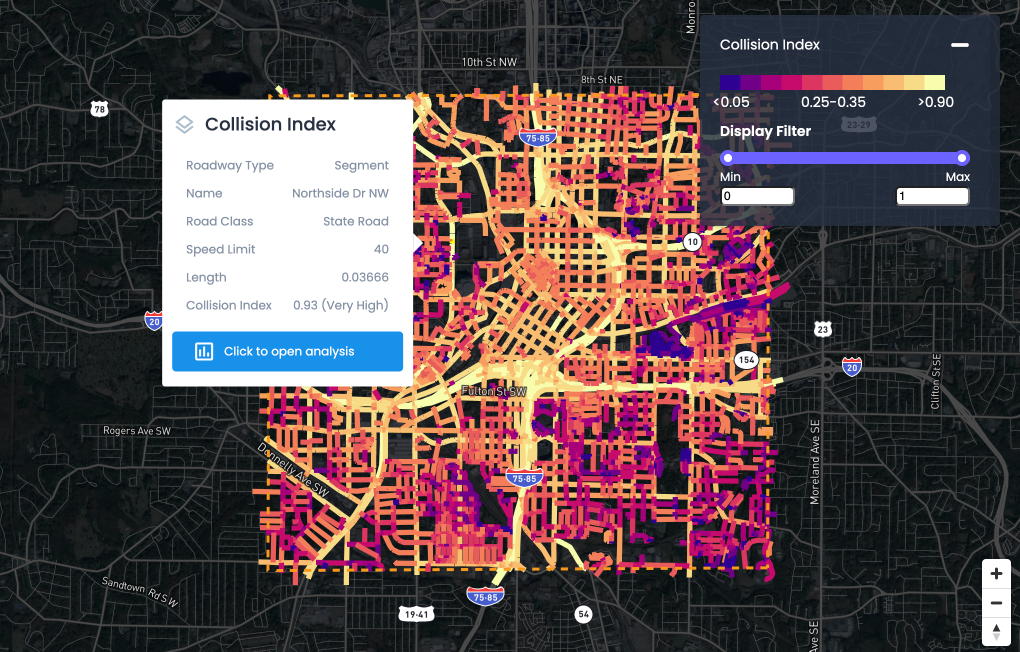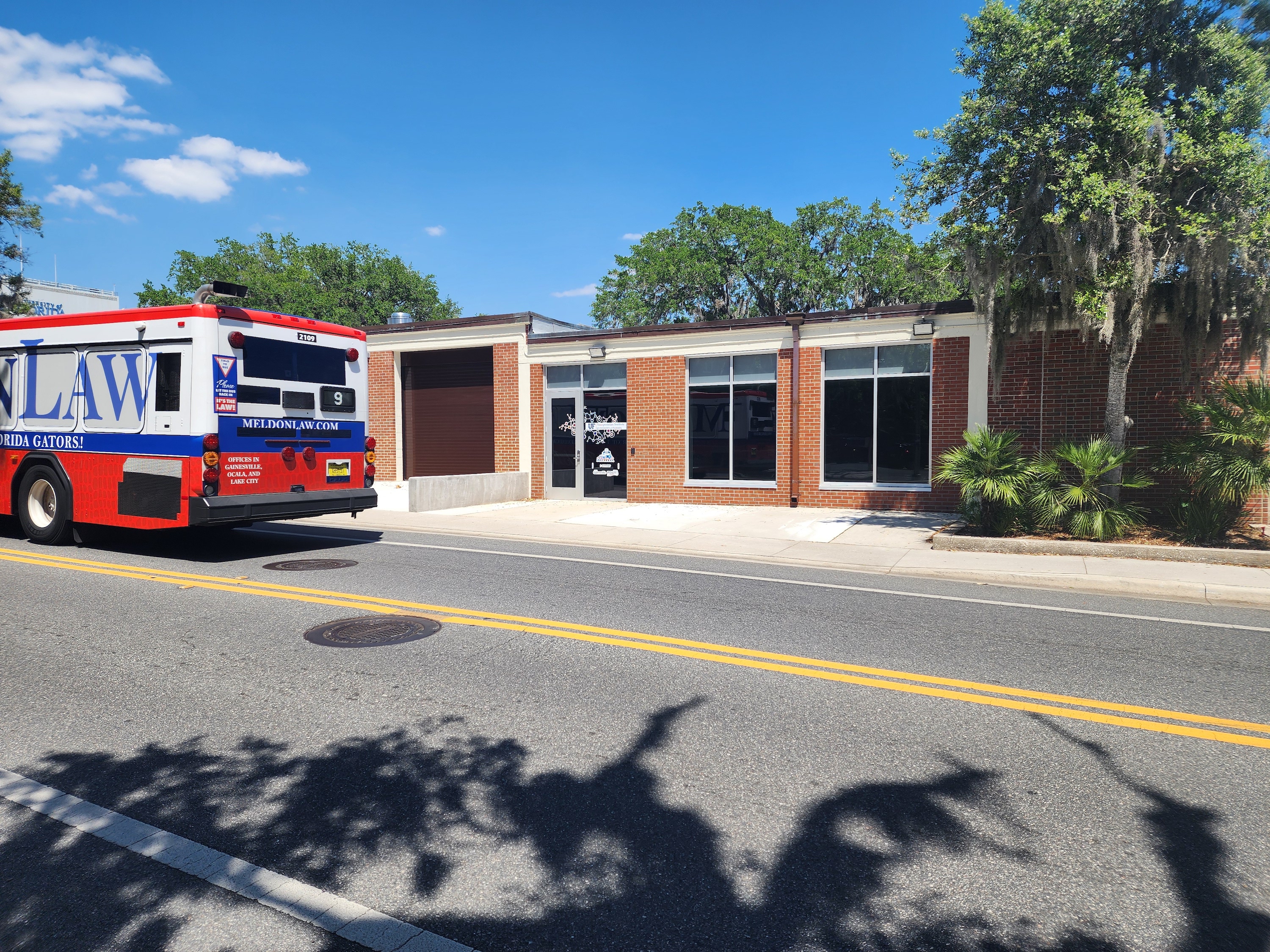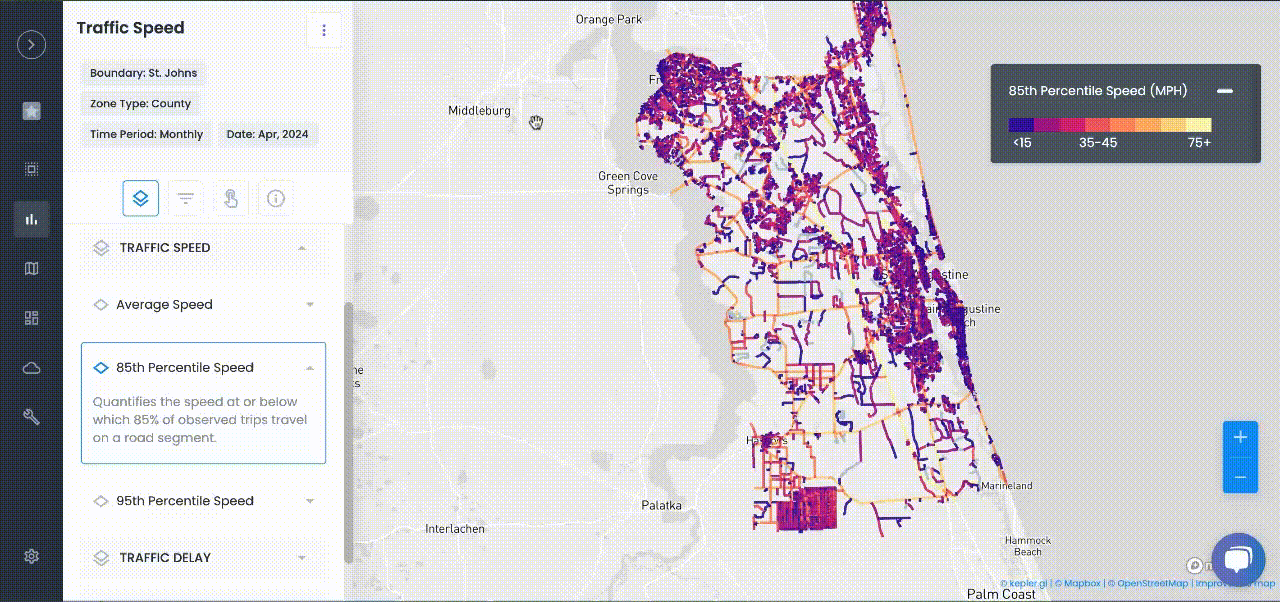
Articles
Unique Insight Into What's Possible: A Conversation with Plan Hillsborough
A wide-ranging conversation with Plan Hillsborough that proves when you get a bunch of big thinkers all in one room great things can happen.
A wide-ranging conversation with Plan Hillsborough that proves when you get a bunch of big thinkers all in one room great things can happen.
The folks over at Plan Hillsborough are some of the most active users on the Urban SDK platform. As you'll see later in this interview, they use it for everything from planning to data management to answering citizen questions — and all points in between.
We always like to champion our clients to help us innovate. To help create a platform they will find intimately valuable. In the case of Plan Hillsborough, these conversations have led to some of our most comprehensive enhancements.
The following interview shows just how versatile Urban SDK is in solving the needs for modern transportation professionals.
[Editor's Note: This interview has been transcribed and edited for clarity]
A Platform Designed for Planners
Urban SDK: What was the deciding factor going with Urban SDK? Was there a specific product, or something else, that made you decide you wanted to partner with us?
Plan Hillsborough: A few years back, we had a contract with Iteris for their ClearGuide platform. And that was really great, don't get me wrong.
But what we found is that planners were really intimidated by it. The user interface seemed to be far more sophisticated, kind of verging on overly complex.
And what I found was, a lot of times they would need data or analysis that could be produced in ClearGuide, but they just felt like it was too difficult for them to use. So they would instead ask me to do it for them.
There was a very steep learning curve.
What I like about Urban SDK is that it feels like it's designed for planners. You don't need an engineering degree, or a ton of experience, to hop on and click around. It's not intimidating whatsoever.
We're finding that a lot of our partners are taking advantage of this way more than they took advantage of the other platform [Iteris ClearGuide].
The Iteris ClearGuide interface was overly complex ... Urban SDK feels like it's designed for planners
I also like what you have done with Studio: giving us the liberty to go in, add our own datasets, and start building analyses on our own. That's something that we are able to take advantage of because we have staff who are competent; they have the skills to do that.
You guys have always been amazingly responsive, and I most certainly appreciate that.
You're always offering to work with us, and help develop new tools, or new analyses, if we need them. But I really appreciate the freedom to go do the stuff on our own.
Understanding the Science Behind the Metrics
USDK: That's awesome. Kind of as an aside: I'm really excited for us to roll out our dashboard builder. I think it's going to be really helpful for you.
All those dashboards that we created for you guys — the ones that live on that public dashboard space — we're developing a tool where you can actually go in and build your own dashboards inside of Studio.
So I'm really excited for that one. I think it's going to be super beneficial for you and a lot of other MPOs, as well.
PH: That's characteristic of another thing that I really love about the Urban SDK team.
It seems like every time I log on, you all have updated the platform and added some new feature that is just really cool <laughs>.
The platform was great when we contracted with you a couple of years ago. But even as amazing as it was back then, it has just grown exponentially in ease of use.
The level of insight we now get is off the charts ... I'm always waiting to see what you will do next
It makes me really excited to see what the team can come up with in the future.
I think you all have a really great team of folks that are innovative, and they understand the science behind applying these metrics.
It makes me really excited to have that relationship with you all, because I'm always waiting to see what you all do next.
USDK: Well, we love hearing that. We really try to take product request to heart, see how we can include them in our roadmap.

Organized Data, In One Place
USDK: During your early stages with Urban SDK, is there anything that you hadn't really intended on using that you have found to be really valuable?
PH: I might not be the best person to answer that question because I mostly use it to QA / QC my team's work, and I leave the analysis up to them.
I was really excited to see the quality of the visualization that you all came out with — like that safety heat map with the slider.
That has been really helpful in one-on-one briefings with board members. Especially because we are still doing a lot of virtual meetings.
I [enjoy] having access to the platform anytime I'm just at my computer. They really appreciate me being able to log on and have all of the data in one place. So I'm not having to sort through files and find the thing.
I can just hop on, show them that slider, and where crashes are occurring in the county. That's been a really helpful tool.
Board members really appreciate me being able to log on and have all of the data in one place
I like the three dimensional view that you all came out with on the map. I think that's been really helpful for zooming in to parts of the county and allowing people to establish the context.
USDK: Awesome. That's some really good information. I've heard that data can be all over the place, especially when you're dealing with the county and as well as your own data. So knowing that you're able to log in quickly and get what you need is really exciting.
PH: Exactly. A perfect example is when having briefings with board members. The conversations can shift really quickly because they have to cover a lot of topics in a short amount of time. So we might begin the conversation talking about safety, and then transition to traffic jams or infrastructure.
Before we had Urban SDK and all the data in one place, using visual aids was almost impossible. Because if you switch from [one] safety platform to another — let's say an infrastructure maintenance platform — you have to go to another website, wait for that to load, enter your password, click around, wait for that to load.
It just takes up time. They don't want to wait for you to bring up data. They want to have the conversation right away, and Urban is the only platform I could see that being feasible on.
USDK: That's awesome. I love hearing that.
"You're Always On the Ball"
USDK: How does Urban SDK's customer service compare to what you've used in the past? You've given a lot of good examples already, but is there anything else that you want to elaborate on?
PH: What has impressed me about the team at Urban is, I know that you have dedicated staff that are data scientists, but you are the most creative problem solvers I have ever worked with.
Anytime we have a question about what could be possible, we get three to four ideas from your team — rapid fire. We might come up with an idea saying, "Hey, would this be possible?" And that leads to a conversation with really good ideas.
The creativity of your team is just off the charts responsive for sure.
You are the most creative problem solvers I have ever worked with.
When we started talking about the regional contract [with Florida DOT and MPOs in the district], you all were just exceptionally patient. You always volunteered to talk to whoever we thought needed to hear about the product or receive a demo.
You're always on the ball, and I appreciate that so much.
USDK: Thank you so much.
My last question for you is: what specific projects have you used our data and/or platform to complete?
PH: The State of the System Report was the primary reason we started seeking out a data platform — so we can report the federally required performance measures. And in our State of the System Report, we also provide data on a lot of the local measures that are important to folks in the county.
So that is the primary use case.
But since then we have begun using it for our TIP priority list and ranking projects.
The creativity of your team is just off the charts responsive for sure.
We've used it updating the Hillsborough County Comp Plan. We are going to begin using it to update the City of Tampa Comp Plan. I mean the, the mark of Urban SDK is imprinted all over the County Comp Plan mobility element, and it's gonna be the same for the City of Tampa.
We also hop on for responding to questions from the public. A lot of times we get calls from folks who want to know what the traffic jam situation is in their neighborhood and whether or not that's going to improve over time. So we even use it for those [kinds of] questions.
Urban SDK is also factoring quite heavily into our long range plan, because we are going to use it as the central repository for data for the 25 year vision. We'll be looking at things like road condition, bridge condition, the crashes, of course, and travel time reliability. And we're working on developing that traffic impact analysis tool with the county. That's also going to factor into a long range plan, as well as their development reviews.
So we found a ton of uses for it.

Creating a Better Performance Measures Program
USDK: Well those were really the only questions I had. Is there anything you wanted to relay that I didn't ask?
PH: Really that when you contract, you get the existing [off-the-shelf] version, but there are so many opportunities to build on this on your own.
Again, I love Studio because we can now experiment with uploading our own datasets. It really gives you unique insight into what's possible when connecting two datasets together.
That's allowing us to better build out our performance measures program, because we're always trying to think about how we can better explain the traffic situation to the public.
It's given us a lot of inspiration for how to tell better stories.
USDK: That's fantastic. As we kind of grow, we really want users to be entrenched in Studio, especially when creating their own maps.
You are absolutely some of our super users, so hearing your feedback is very interesting to me personally. Because I know it's going to be really helpful for newer customers when trying to figure out exactly what they can do with the platform.
The Power of Regional Planning
PH: I'm [also] really excited for the regional expansion, if that ever happens. Because we want to keep track of what's going on in the areas outside of the county.
[That way] we can better predict to what will happen in our county, especially as urban areas start merging together. It becomes so much more important to keep an eye on the trends outside of the immediate vicinity we're planning for.
Organizations should really look at Urban SDK as a valuable tool that assess what to expect as they grow
USDK: That makes perfect sense. I know we are working with other groups on this, so I'll keep you posted just so you can look at how the data looks.
PH: I love the idea. I fell in love with the idea of regional expansion because I always saw the long term vision of this platform being rolled out to the entire state.
There are a ton of counties in the state of Florida experiencing massive population growth. They're probably going to grow in a very similar fashion to the way that Hillsborough and Pinellas, and Pasco County are also growing.
And for them, if you give them a window into our data — so that they know what to expect in the way of traffic and transportation performance — that has huge implications for how they plan for the growth.
They can look to us as a model in real time and see the issues we're dealing with. And then for us, we can look at Orlando or Jacksonville or Miami.
It just makes a ton of sense to all be on the same platform. I hope that we can achieve that some point in the future.
Urban really gives you unique insight into what's possible when connecting two datasets together
I think that your customers, or people who are considering this, they should really look at it as a valuable tool that assess what to expect as they grow.
USDK: I totally agree. I think, on a statewide level, like you said, it could be huge. Eliminating those information silos, so everyone is working off the same sheet of music.
Everyone knows what the other is doing, and then can share ideas. Multiple brains are definitely better than one. So just seeing what everyone else is doing will give others ideas.
So I'm really excited and hopeful for a statewide contract.
PH: [I've] got my fingers crossed. <laugh>

NEWS
Recent Announcements
See how public sector leaders succeed with Urban SDK.

Company News
Urban SDK Joins Government Technology’s AI Council to Help Shape the Future of AI in the Public Sector
We’re proud to announce that Urban SDK has officially joined the AI Council, part of Government Technology’s Center for Public Sector AI

Company News
Collision Index: Proactive Traffic Safety Powered by AI
Communities now have another layer of road safety thanks to Urban SDK’s Collision Index

Customer Stories
University of Florida Transportation Institute Partners with Urban SDK to Expand I-STREET Program
Urban SDK and the University of Florida have partnered to expand the university's I-STREET Program
WEBINAR
Identify speeding and proactively enforce issues
See just how quick and easy it is to identify speeding, address complaints, and deploy officers.
